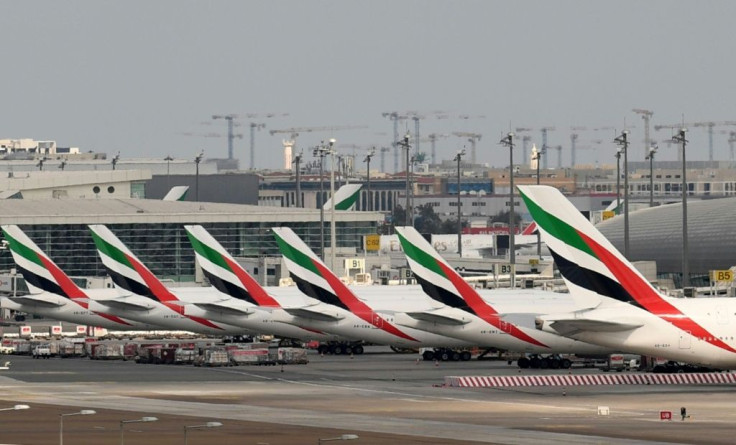Coronavirus Grounding: Global Airlines May Lose $314 Billion In Revenues This Year

KEY POINTS
- Global airlines are expected to lose $314 billion in revenues this year
- The largest regional losses will be in the Asia-Pacific region ($114 billion)
- Airlines could burn through $61 billion of cash reserves in the second quarter
Global airlines are expected to lose $314 billion in revenues this year due to the disastrous effects of the coronavirus pandemic, said the International Air Transport Association, or IATA, on Tuesday.
That forecast is 25% higher than IATA’s previous loss estimate, due to the prolonged status of grounded airplanes and uncertainties over when flights will resume.
Revenues for 2020 are expected to plunge by 55% from the prior year.
The largest regional losses will be in the Asia-Pacific region ($114 billion), Europe ($89 billion) and North America ($64 billion).
In addition, IATA now forecasts that air traffic – measured by revenue passenger-kilometers -- will drop 48% this year, versus its previous 38% decline prediction.
IATA, which has urged governments around the world to provide liquidity and tax relief to their local air carriers, said it believes domestic routes will re-open first – as in China – while the opening of international routes will take longer. (Airlines derive the majority of their income for international flights).
“Economists have become much more pessimistic about the global economy,” said IATA chief economist Brian Pearce. “Our previous impact assessment was based on the end of March forecast for global economic growth, which at the time was predicting recession but less severe than the global financial crisis [of 2008]. The expectations now are for a very severe economic downturn essentially as much of the world’s economy has been grounded effectively by the social distancing requirements. That obviously affects the speed at which air travel will return in the second half of the year because jobs will be lost, confidence damaged, and incomes reduced.”
Pearce also cautioned that the lifting of travel restrictions represents another unknown variable in these forecasts.
“In passenger number terms, it’s domestic markets that matter, and that’s obviously important for airports,” he said. “For airlines, revenues are more dependent on revenue passenger-kilometers flown, and…domestic represents one-third of revenue passenger kilometers. So obviously the slower opening of international borders is more problematic for the airline industry.”
IATA Director-General Alexandre de Juniac noted that while some European governments plan to re-open their economies at some point, the aviation industry has not yet been included.
“Furthermore, China and South Korea -- countries that have been successful in controlling the disease within their own borders -- are now doubling down on international travel restrictions because they don’t want to risk importing a second [virus] outbreak,” said De Juniac. “I don’t underestimate the challenges that are ahead. The keys to success, however, are well known in the aviation world -- cooperation and harmonization. Successive unilateral actions by states can shut down aviation as we have seen. But unilateral actions cannot restart aviation. Governments must work with each other and together with the industry.”
For now, de Juniac remains pessimistic.
“The industry’s outlook grows darker by the day,” he said. “The scale of the crisis makes a sharp V-shaped recovery unlikely. Realistically, it will be a U-shaped recovery with domestic travel coming back faster than the international market.”
De Juniac added that while several governments have offered financial relief measures, the overall situation remains critical.
“Airlines could burn through $61 billion of cash reserves in the second quarter alone,” he warned. “That puts at risk 25 million jobs dependent on aviation. Without urgent relief, many airlines will not survive to lead the economic recovery.”
IATA estimates that the airline industry indirectly supports some 65.5 million jobs worldwide.
“Financial relief for airlines today should be a critical policy measure for governments,” added de Juniac. “Supporting airlines will keep vital supply chains working through the crisis. Every airline job saved will keep 24 more people employed, and this could give airlines a fighting chance of being viable businesses that are ready to lead the recovery by connecting economies when the pandemic is contained. If airlines are not ready, the economic pain of COVID-19 will be unnecessarily prolonged.”
© Copyright IBTimes 2024. All rights reserved.



















